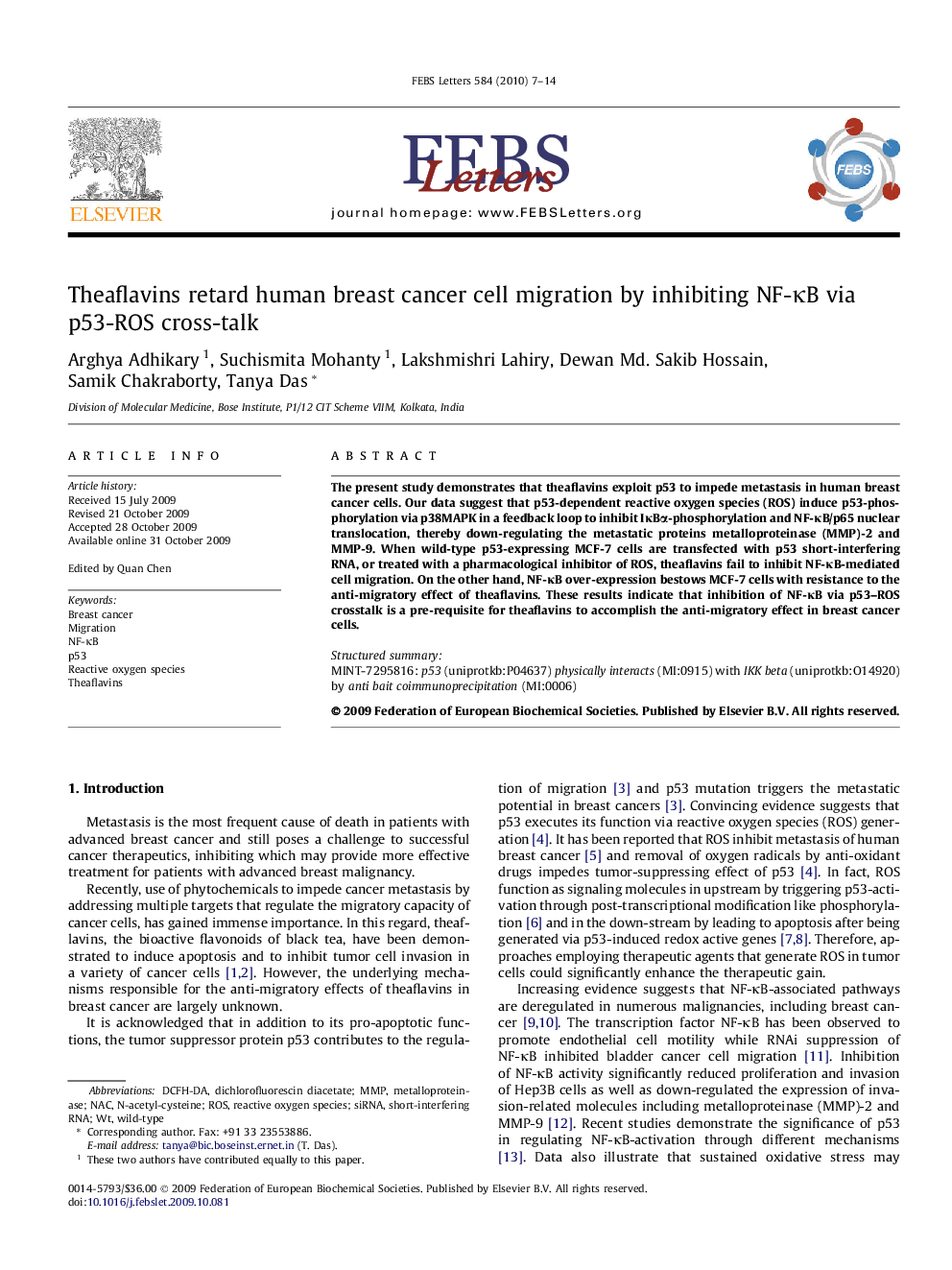| Article ID | Journal | Published Year | Pages | File Type |
|---|---|---|---|---|
| 2048844 | FEBS Letters | 2010 | 8 Pages |
The present study demonstrates that theaflavins exploit p53 to impede metastasis in human breast cancer cells. Our data suggest that p53-dependent reactive oxygen species (ROS) induce p53-phosphorylation via p38MAPK in a feedback loop to inhibit IκBα-phosphorylation and NF-κB/p65 nuclear translocation, thereby down-regulating the metastatic proteins metalloproteinase (MMP)-2 and MMP-9. When wild-type p53-expressing MCF-7 cells are transfected with p53 short-interfering RNA, or treated with a pharmacological inhibitor of ROS, theaflavins fail to inhibit NF-κB-mediated cell migration. On the other hand, NF-κB over-expression bestows MCF-7 cells with resistance to the anti-migratory effect of theaflavins. These results indicate that inhibition of NF-κB via p53–ROS crosstalk is a pre-requisite for theaflavins to accomplish the anti-migratory effect in breast cancer cells.Structured summaryMINT-7295816: p53 (uniprotkb:P04637) physically interacts (MI:0915) with IKK beta (uniprotkb:O14920) by anti bait coimmunoprecipitation (MI:0006)
